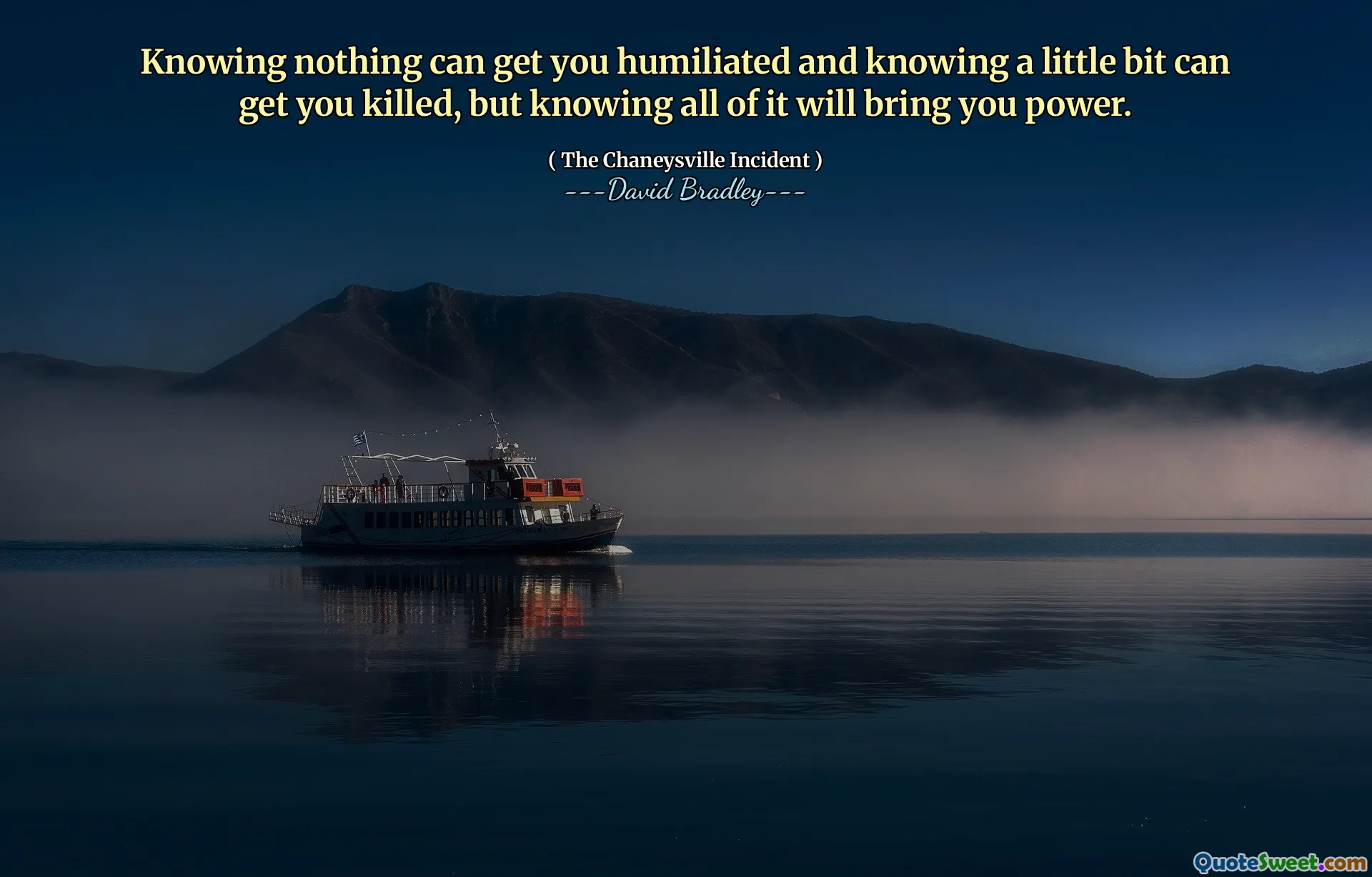
Knowing nothing can get you humiliated and knowing a little bit can get you killed, but knowing all of it will bring you power.
This quote encapsulates the nuanced relationship between knowledge and its consequences. At first glance, it suggests that ignorance provides a kind of safety—by not knowing, one might avoid embarrassment or shame. However, the danger of limited knowledge is highlighted by the fact that it can lead to grave danger, even death, because without a full understanding, one cannot properly assess risks or protect oneself. The most compelling part of the statement is that complete knowledge, though potentially perilous in certain contexts, ultimately grants power. With all information, a person can make informed decisions, understand complex dynamics, and exert influence. It mirrors the complex balance between curiosity and caution, emphasizing that while ignorance might be comfortable, it is also limiting. Partial knowledge is portrayed as dangerously deceptive—believing you understand enough can lead to underestimating risks and making fatal errors. Conversely, full knowledge, though demanding and sometimes risky in itself, empowers an individual to navigate the world more skillfully and assertively. The message resonates deeply with themes of wisdom, responsibility, and the peril of overconfidence. In a broader sense, it prompts us to consider how we pursue knowledge and the risks involved in our quest for understanding, all while acknowledging the inherent dangers and rewards that come with each level of awareness. It invites reflection on the importance of acquiring comprehensive knowledge to truly harness the power of understanding, while remaining mindful of the dangers that come with overconfidence or incomplete insight.






